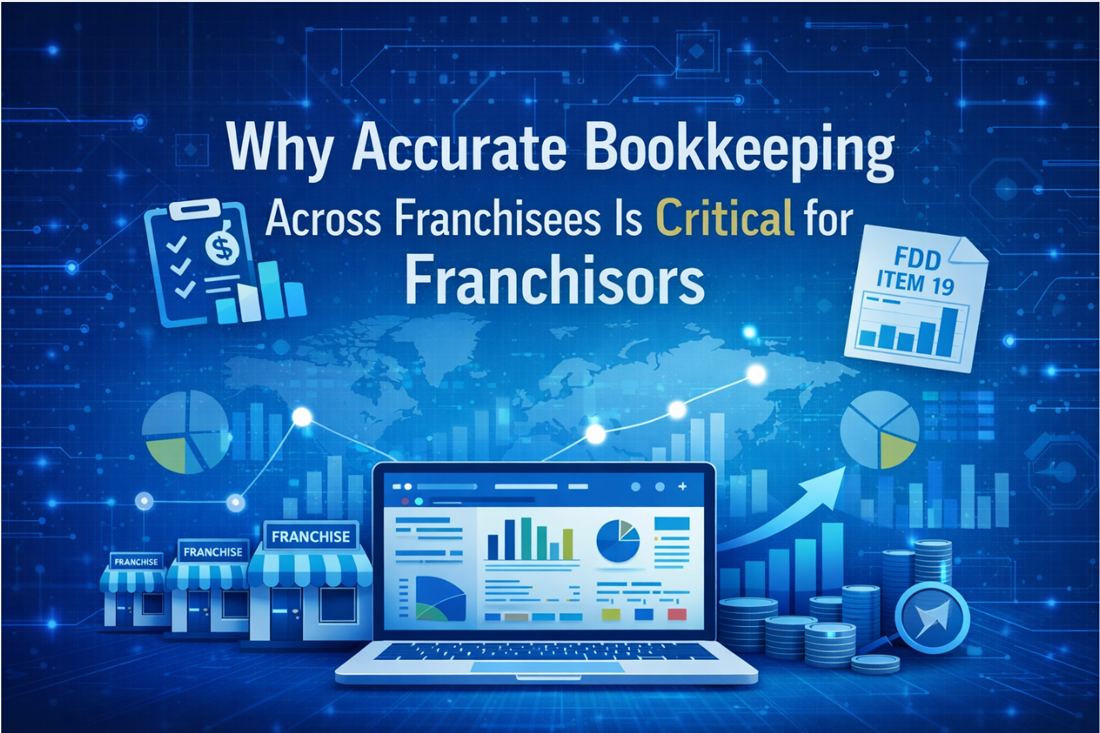One of the most important decisions for business owners is which type of business entity to form. Your business structure impacts your tax savings, accounting practices, and how you pay yourself.
Examples of business structures include:
- Sole proprietorship
- Partnership
- Limited liability company (LLC)
- S corporation (S corp)
- C corporation (C corp)
Businesses often weigh the pros and cons of forming an LLC vs. S corp. xendoo does online accounting, bookkeeping, and taxes for businesses, so it’s a question we answer frequently.
In this article, we’ll explore the differences between an LLC vs. S corp, and help you decide which structure is best for your business.
Why your business structure matters
Choosing the right business entity is crucial for several reasons, including:
- Liability protection: Some business types provide legal protection for your personal assets, while others don’t. For example, sole proprietorships are unincorporated businesses without personal liability protection. A sole proprietor is responsible for the business’s debts and liabilities.
- How you pay yourself: With some LLCs, you can pay yourself by withdrawing funds from an owner’s draw. In others (like corporations), you’ll need to pay yourself a salary.
- Tax classification: Your structure impacts how you file taxes, the amount of taxes you owe, and which tax deductions you can claim.
- Ability to raise capital: Some entity types have many options for raising capital, while others are very limited.
What’s the difference between LLC vs S corp?
Overall, LLCs have a more flexible structure, while S corps can save money on taxes in the long run.
The biggest differences between LLCs and S corps are ownership, taxes, and management structure. Here’s a breakdown of each.
| LLC | S corp | |
| Ownership | No restrictions on the number of members or their citizenship status. Must be 18 years or older. | Limited to 100 shareholders who must be US citizens or resident aliens. |
| Taxes | Taxed as a pass-through entity. Subject to self-employment taxes. | Taxed as a pass-through entity. Saves on payroll taxes by paying owners a salary and distributions. |
| Management structure | May choose between member-managed or manager-managed | Managed by shareholders and officers |
| Reporting | Most states require filing annual reports along with an annual reporting fee or tax | More complex reporting requirements than LLCs. Must file yearly reports and documentation with the state |
Below, we’ll look at LLCs and S corps in more detail to help you decide which is the best option for your company.
What’s an LLC?
A limited liability company (LLC) combines the liability protection of a corporation with the tax benefits and flexibility of a partnership.
The key points to know about operating as an LLC are:
- Limited liability companies are separate legal entities from their owners (called members). This limited liability protects the members’ personal assets from the company’s debts.
- LLCs have a flexible tax structure, with the option to pay taxes as a corporation or as a pass-through entity.
- There are no restrictions on the number of LLC owners.
- Members usually pay themselves through distributions, following the guidelines set in their operating agreement.
- The specific requirements to form an LLC can vary depending on the state where your form your LLC.
Requirements for an LLC generally include:
- Choosing a unique business name.
- Naming a registered agent, who’ll accept legal documents on behalf of the LLC.
- Filing articles of organization with information such as the LLC’s name, purpose, address, duration, management structure, and members.
- Paying taxes and fees based on the state requirements.
| Advantages of LLCs | Disadvantages of LLCs |
| Protects the owner’s personal assets | Subject to self-employment tax, meaning a possible higher tax bill |
| It’s a pass-through entity, so you include business income on your personal tax return. This way you avoid double taxation (where the corporation and shareholders pay tax on the same income). | Fewer options for raising capital compared to corporations |
| Offer greater flexibility in management and ownership structure | The multi-member structure can become complex |
How LLC taxes work
LLCs don’t pay corporate income tax. Instead, they pass through their tax liability to the business owners. In an LLC with multiple owners, each owner includes their share of the company profits and losses on their personal income tax returns.
However, LLCs have the option to choose a corporate taxation structure with the IRS. Choosing a corporate tax structure can be an advantage for high-income-earning LLC members.
In an LLC with a corporate tax structure, the LLC would file a corporate income tax return and pay the corporate tax rate instead of passing the liability on to the members.
LLC ownership
LLCs have a very flexible ownership structure, with the only requirement being that members need to be at least 18 years old.
An LLC can have one or multiple members, with no maximum number of members. Also, owners can be individuals, corporations, other LLCs, or foreign entities.
LLC management structure
An LLC provides its members with more flexibility than an S corp. There are two types of LLC management structures: member-managed and manager-managed.
In a member-managed LLC:
- Each member has the authority to make decisions on behalf of the LLC.
- Each member has the responsibility to play an active role in the management and operation of the business.
In a manager-managed LLC:
- One or more individuals act as the LLC manager.
- Only the manager has the authority to manage the company.
- The manager can be a member or a non-member.
Unlike in a member-managed LLC, members of a manager-managed LLC can’t make decisions on behalf of the company. Members also can’t interfere with the LLC manager’s operational decisions.
Most LLCs include their management structure with their articles of organization.
What’s an S corp?
An S corporation is a corporation that chooses to pass its tax liabilities and tax credits to its shareholders for federal tax purposes.
An S corp is a tax classification. It offers the same personal liability protection as a traditional corporation without a corporate income tax.
Most S corps start as traditional corporations (called C corps). To avoid double taxation, or for other reasons, corporations can file an S corporation election with the IRS. However, not all corporations meet the requirements for an S corp status.
| Advantages of S corps | Disadvantages of S corps |
| Provides limited liability protection for shareholders | Ownership restrictions, such as 100 members max and only one class of stock |
| As a pass-through entity, it’s not subject to corporate income tax | Must pay a salary to shareholders |
| Can save on employment taxes by paying shareholders both a salary and dividends | Complex tax filing requirements |
How S corp taxes work
S corps pay taxes as pass-through entities. Instead of paying the corporate tax rate, shareholders report their share of income and losses on their personal income tax returns.
S corps need to pay their shareholders a reasonable salary and withhold employment taxes like Social Security and Medicare (roughly 35% to 40% of the shareholder’s total take). They can also pay out dividends to shareholders from the company’s remaining profits.
This distribution would not be subject to employment taxes which would equate to a 15.3% tax savings. It can help companies save money on income taxes in the long run while avoiding double taxation.
S corp ownership
To qualify for S corp status, the corporation must meet the following requirements:
- Be a domestic corporation
- Have only allowable shareholders (individuals, certain trusts, and estates)
- No more than 100 shareholders
- Only one class of stock
- Not be an ineligible corporation (certain financial institutions, insurance companies, and domestic international sales corporations)
S corp management structure
S corps have specific requirements regarding their management structure. An S corp must have shareholders and officers.
- Shareholders: Owners of the company
- Officers: Manage the day-to-day operations of the company
Shareholders can play a dual role by choosing a shareholder-officer position, instead of hiring officers.
Some companies also have a board of directors, but it’s not mandatory. If the company has a board of directors, the shareholders typically elect them.
S corps must also follow certain corporate formalities, including holding annual meetings and maintaining proper records of company activities. Regulations vary by state, but they usually include recording meeting minutes.
How to choose between an LLC or S corp
Choosing between an LLC and an S corp depends on various factors, including your business goals, structure, and tax considerations. Below are some guidelines to help determine the right one for you.
When to choose an LLC
Choose an LLC when you want:
- A more flexible and less formal business structure
- Fewer administrative requirements
- Greater flexibility in management, ownership, and profit distribution
- Flexible payroll requirements
Small businesses and startups that need operational flexibility would operate best as an LLC.
When to choose an S corp
Choose an S corp when you want:
- A corporate legal business structure without being subject to double taxation
- Potential tax advantages, particularly if you’re a business with substantial profits
- Consistent income and benefits for owners while enjoying the tax advantages of pass-through taxation
- To attract outside investors for rapid growth
Growing, high-income earning companies can see potential tax advantages from choosing an S corp status.
Choose the best entity type for your business
If you’re unsure which entity type to choose, you can use a tax service like xendoo.
Our in-house CPAs can help save money on taxes, outsource your bookkeeping, or get personalized advice like choosing between LLC vs. S corp.
FAQs
Which is better for taxes: LLC or S corp?
The answer depends on your specific circumstances. However, an S corp can provide potential tax savings for businesses with higher profits because they allow for structured tax planning and savings.
LLCs may be more advantageous for businesses with lower profits or companies that need flexible operational and payroll requirements.
Why choose an S corp over an LLC?
An S corp can offer tax savings by potentially reducing self-employment taxes. It can also be a more appealing structure for businesses with plans for significant growth or attracting outside investors.
Do S corps pay self-employment tax?
No, an S-corp does not pay self-employment taxes. Instead, owners receive a reasonable salary and have payroll taxes withheld from their paychecks.
They also receive distributions from the company’s profits, but they aren’t subject to tax.
Can you switch from an LLC to an S corp?
Yes, it’s possible to switch from an LLC to an S corporation by filing the required forms with the IRS. You also need to qualify as an eligible entity for S corporation status and follow the specific steps the IRS outlines.









